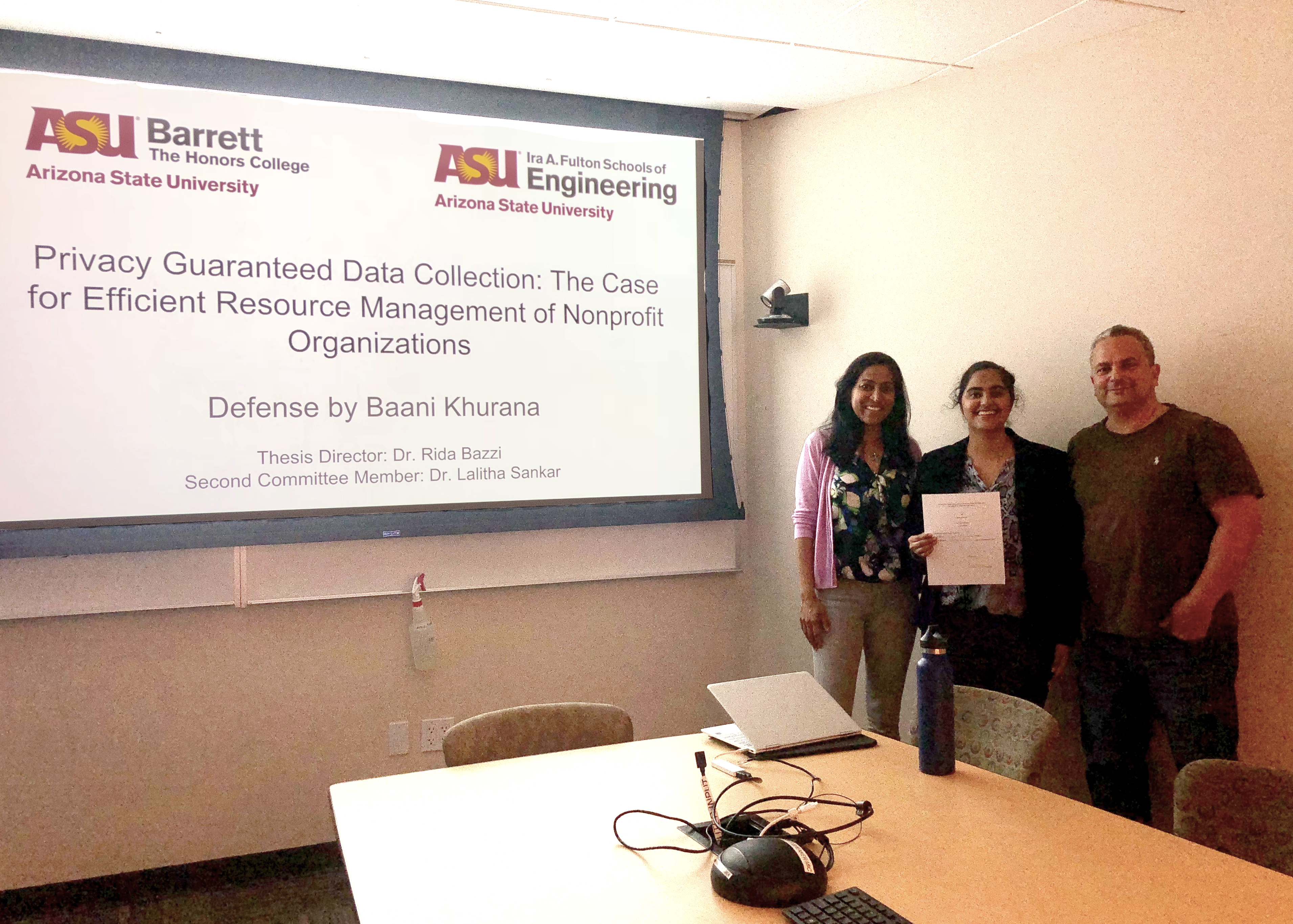Engineering and humanities collide for social good
ASU grad helps spread awareness of homeless population needs among tech field
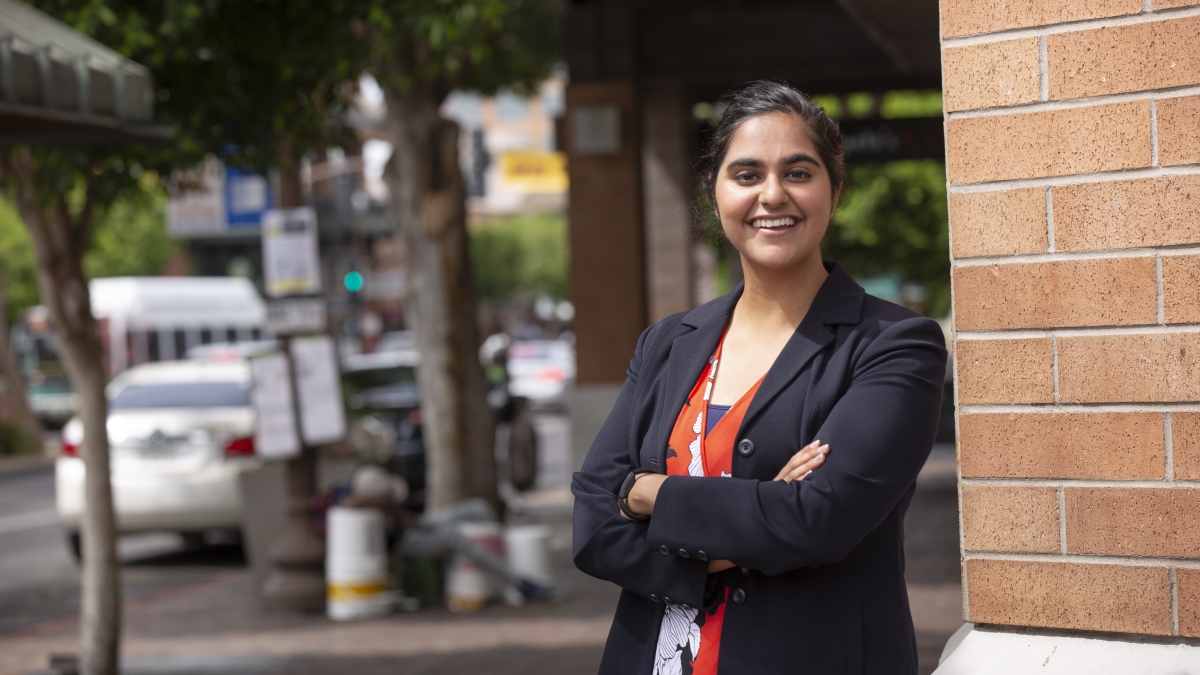
According to the National Alliance to End Homelessness, 9,865 people experience homelessness on a given night in Arizona. Nationally, 552,830 people lacked housing on a given night last year, including men, women, families, veterans and youth.
People who experience homelessness often lack shelter, clothing and food as well as opportunities for regular employment and health care because they don’t have access to a permanent address, phone line or internet connection.
Since 2016, Baani Khurana has been volunteering with Arizona State University’s Project Humanities outreach initiative to distribute donations of clothing, water and toiletries to people experiencing homelessness in the Phoenix metropolitan area.
“My Sikh faith inspires a passion for community service,” said Khurana, who recently graduated with a bachelor’s degree in computer science from the Ira A. Fulton Schools of Engineering at ASU. “Nonprofit organizations are not given as much exposure in the tech field. I wanted to change that narrative by spreading awareness and helping meet the needs of the homeless population.”
Inefficient processes hinder potential impact
Through volunteering, Khurana noticed organizers struggling to acquire critical resources and redistribute surplus donations to efficiently meet the needs of people who are homeless. Project Humanities, for instance, often has a surplus of women’s clothing but not enough men’s clothing.
The initiative also has a difficult time tracking what items go the fastest, what items are being requested most often and how to share items with other organizations.
“Our greatest challenge is access and distribution of resources,” said Rachel Sondgeroth, an ASU undergraduate student in religious studies and the communications and outreach coordinator at Project Humanities. “Ideally, all the nonprofits in Arizona should be part of a greater network that connects us with resources and gets them to us in a simple and timely manner.”
In researching Phoenix’s homelessness crisis, Khurana found many nonprofit organizations addressing the needs of people who are homeless were disconnected from one another. The disassociation was hindering their ability to maximize their impact in serving the community.
“There is no streamlined process of understanding needs, tracking donations and sharing resources among nonprofit organizations,” Khurana said. “The lack of efficiency, consistency and centralization of the current process decreases the rate at which homeless individuals can be helped. This raises the question: Is it possible to improve this process using technology?”
Baani Khurana (center) poses with Associate Professor Lalitha Sankar (left) and Associate Professor Rida Bazzi at her honors thesis defense for her project, “Privacy Guaranteed Data Collection: The Case for Efficient Resource Management of Nonprofit Organizations,” which was the basis for Khurana’s solution for Project Humanities. Photo courtesy of Baani Khurana
A privacy-guaranteed software solution
For her honors thesis as part of Barrett, The Honors College at ASU, Khurana proposed a privacy-guaranteed software solution to improve the process of collecting statistics on client needs, tracking donations and managing resources more effectively.
As privacy assurance is important to people experiencing homelessness, Khurana wanted to ensure her software could collect data with no personally identifiable information.
She also sought to offer an alternative to databases that require identity documents since many people experiencing homelessness often do not have valid forms of identification. Thus, the software could help nonprofits in assisting clients without needing to know their identity.
Khurana turned to Lalitha Sankar, an associate professor of electrical engineering in the Fulton Schools, for help. Sankar has conducted an extensive amount of research on information privacy for consumers, free online service markets and even critical infrastructure networks.
“Mass violations of individual privacy are happening with technology on a consistent basis,” Sankar said. “Any software designed to serve a broader community needs to offer reasonable privacy guarantees to avoid exposing the identity of those the software solution is intended to serve, such as people experiencing homelessness. Collecting and sharing aggregate data is the first step to limit privacy violations if the designed database does not collect or store any personal data.”
Khurana worked with Sankar to design a two-part prototype solution with an inventory database and web application that only collects queries of donation surpluses and need requests. Additionally, the web application requires an authorized user login to protect resources being shared with multiple nonprofit organizations.
The inventory database stores all the need requests and donation surpluses from nonprofit organizations across the Phoenix metropolitan area. These nonprofits have the ability to browse donations, share resources and ultimately communicate more efficiently to better serve people experiencing homelessness.
“In the future, this software solution can be universally applied and go beyond the scope of Phoenix nonprofits addressing homelessness.”
— ASU engineering graduate Baani Khurana
The web application gives nonprofit volunteers the ability to enter aggregate data, such as a needs request or a donation surplus, and view tables of available resources across the Valley.
“Baani’s inventory database is exactly what we need,” Sondgeroth said. “It will make it easier for us to track our flow of donations, express our needs to the community and expand our network of partnerships.”
Khurana’s software solution will increase standardization, efficiency and automation for nonprofit organizations. The inventory and web application demonstrate a consistent way to collect data across organizations while guaranteeing the privacy of individuals experiencing homelessness. The centrality of the solution increases efficiency and automation by enabling organizations to communicate and make resources more readily available for the community.
“Overall, this database and web application adds value toward nonprofit organizations’ networking capabilities, resource management and resource distribution,” Khurana said. “The percentile of homeless individuals connected to these resources is expected to increase substantially with future live testing and large-scale implementation.”
Khurana will pursue computer science graduate studies through the 4+1 accelerated master's degree program at ASU in the fall. She'll continue to collaborate with Sondgeroth to determine how Project Humanities can start using the database in real time. Additionally, they’ll attempt to get other local nonprofits on board to help maximize their impact and better serve people experiencing homelessness in Arizona.
“In the future, this software solution can be universally applied and go beyond the scope of Phoenix nonprofits addressing homelessness,” Khurana said. “It could potentially expand to any organization in any city that wants to improve resource sharing, collect needs and track donation surpluses, such as women’s shelters, nonprofits for people who experience domestic violence, rehab centers, inpatient hospitalization facilities and more.”
Additionally, Khurana believes the software could be used by redistribution centers serving victims of natural disasters.
“Baani’s honors thesis is technologically motivated for a greater social good, and I think that’s where we need to go with technology,” Sankar said. “She had a goal to create a solution for the local community and achieved it with extraordinary integrity. She’s only scratching the surface of what she can accomplish, and I encourage her to go further with her project.”
Top photo: Computer science graduate Baani Khurana created a privacy-guaranteed software solution to help nonprofit organizations serving people facing homelessness. Photo by Erika Gronek/ASU
More Science and technology
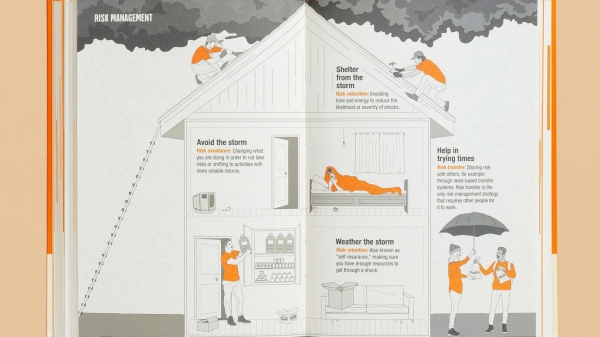
ASU author puts the fun in preparing for the apocalypse
The idea of an apocalypse was once only the stuff of science fiction — like in “Dawn of the Dead” or “I Am Legend.” However these days, amid escalating global conflicts and the prospect of a nuclear…
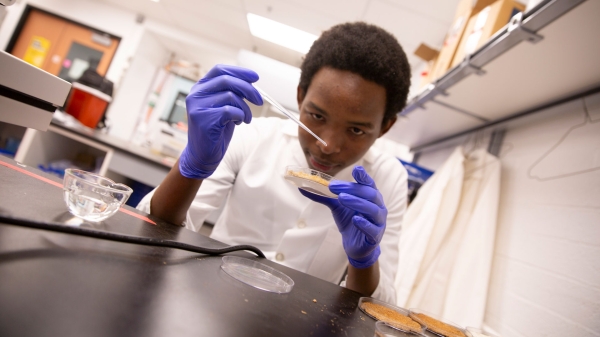
Meet student researchers solving real-world challenges
Developing sustainable solar energy solutions, deploying fungi to support soils affected by wildfire, making space education more accessible and using machine learning for semiconductor material…
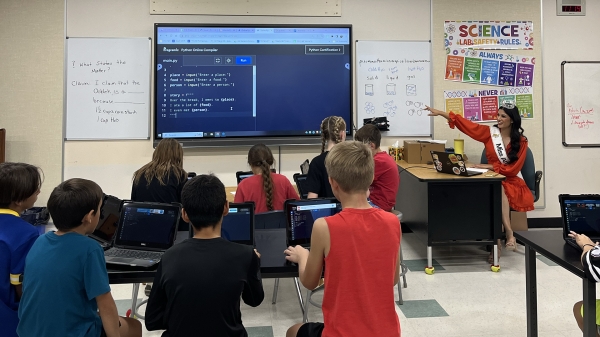
Miss Arizona, computer science major wants to inspire children to combine code and creativity
Editor’s note: This story is part of a series of profiles of notable spring 2024 graduates. “It’s bittersweet.” That’s how Tiffany Ticlo describes reaching this milestone. In May, she will graduate…
